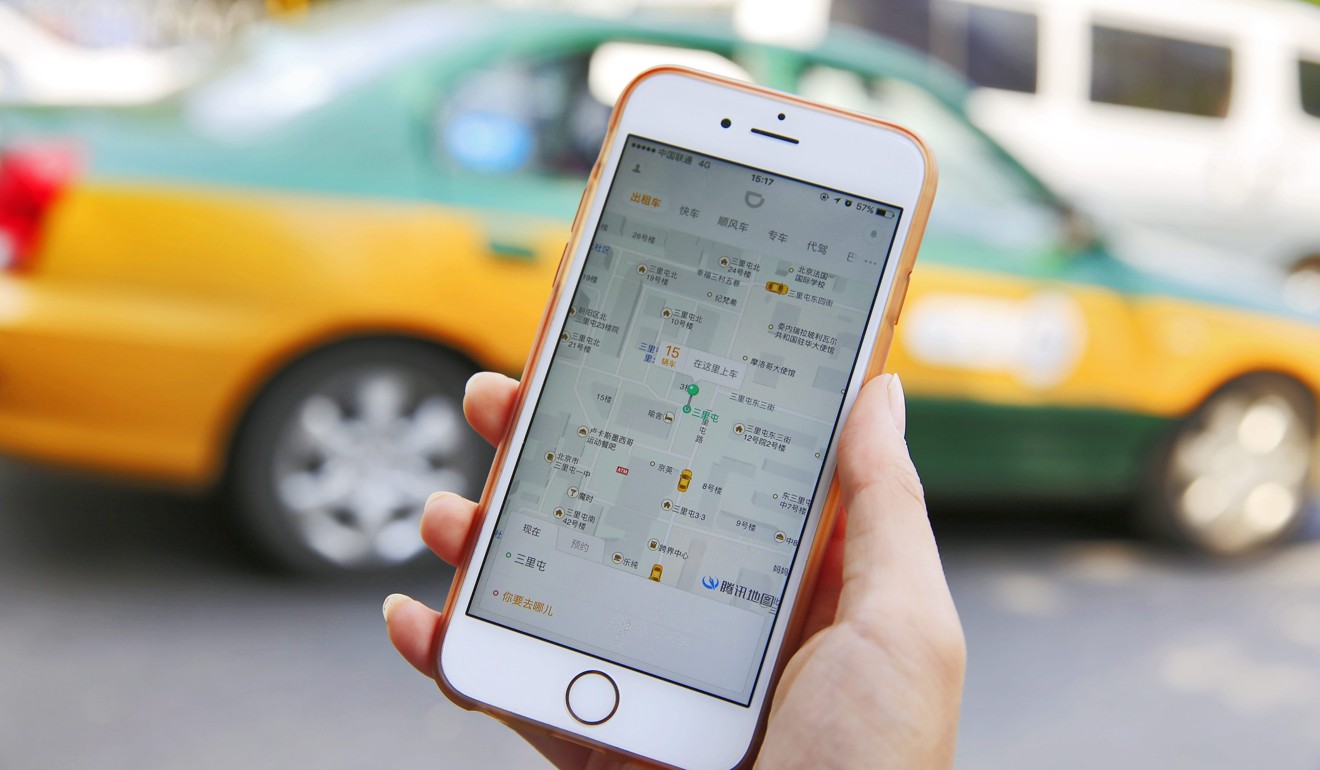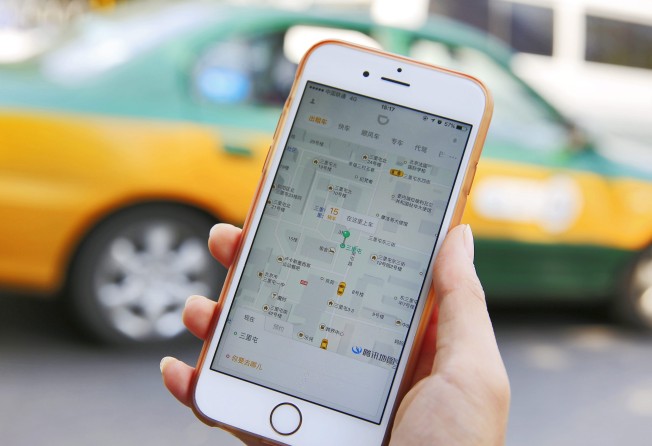
China’s US$56 billion ride-hailing king set for showdown with Uber again after latest fundraising round
New funding will support artificial intelligence research, international expansion, and development of new energy vehicle service networks

Uber, under siege in Europe over its business practices and scrutinised for its workplace culture, now has to contend with a US$56 billion juggernaut breathing down its neck.
Its old rival, China’s Didi Chuxing, has raised almost as much money as all of the technology IPOs in the US this year, valuing the Beijing-based ride-hailing start-up at US$56 billion, according to a person familiar with the matter. The company beat back Uber after a ruinous subsidy war that saw the American company call truce and cede China in return for a small stake. Now, Didi is expanding into autonomous driving and new-energy vehicles, betting that the future of mobility in China and elsewhere would be shared, driverless and green.
Uber didn’t immediately respond to an email request for comment sent outside regular business hours.
The new funding brings Didi’s value to more than US$56 billion and its cash reserves to US$12 billion, according to the person.
The company’s fundraising this year has reached US$9.5 billion, after the latest US$4 billion and US$5.5 billion raised in April, which compares with the US$9.9 billion raised by all technology companies from US stock offerings for the year.
Didi said the new funding will support its artificial intelligence research, international expansion, and new business initiatives, including development of new energy vehicle service networks.
Didi is topping up its cash at a time when Uber, the global leader, is under pressure from regulators in various jurisdictions over its business model. The fundraising is also taking place as Didi pushes into overseas markets as it prepares for an eventual stock-market listing. Winning market share in new markets and upgrading technology to keep up with the trend toward autonomous driving and fleet ownership all require spending.
With its new funds, Didi said it will employ more new energy vehicles in its service networks, as part of its efforts to transform the car and transport industries. The company also said it plans to increase investments in AI talent and technologies to enhance its intelligent driving and smart transport capabilities, and expand these services to more markets around the world.
“Didi, as China’s dominant car-hailing service, has to further diversify its business into areas such as smart vehicles, vehicle-sharing and new energy vehicles,” said Wang Huie, an analyst from Beijing-based consultancy Analysys.
“In China, the competition is very fierce … New business rivals are popping up everywhere and if you don’t catch the initiative, other will,” she said.
Didi now accounts for 99 per cent of the car-hailing market in China, with 300 million customers in over 400 cities.
The new funding and valuation has made Didi the second-biggest unicorn in China, after Ant Financial, an affiliate of Alibaba Group, according to a list compiled by Hurun China.
Besides business expansion at home, “Didi has to step into the global market after its dominance in China. This is the path that most Chinese companies follow,” added Wang.

Grab, Uber’s competitor in Southeast Asia, received US$2 billion of new financing in July this year, led by Didi and SoftBank. Didi has also invested in car-hailing service operators in India, Brazil, Italy and Israel.
“In the initial stage of expanding into international markets, it is good to invest in local operators who have better knowledge of the local rules and regulations as well local customers’ habits,” Wang said.
In the mainland China market, its biggest former competitor Uber exited the domestic market last year after Didi took over Uber’s China operations.
However, another competitor could soon emerge as China’s largest on-demand internet service provider Meituan Dianping is reported to be launching a ride-hailing service in seven Chinese cities including Beijing and Shanghai, according to a report in local media Caixin. Meituan, which raised US$4 billion in October this year, did not immediately respond to a request for comment.
Alibaba owns the South China Morning Post.
Additional reporting by Meng Jing and Laura He